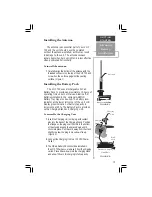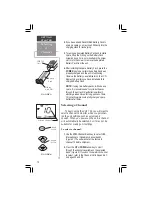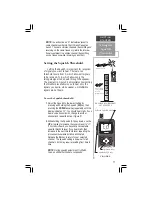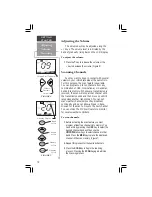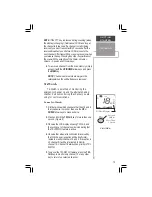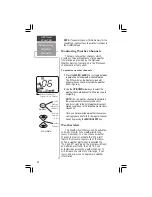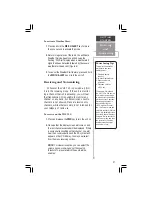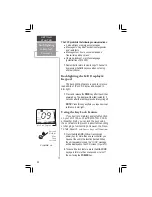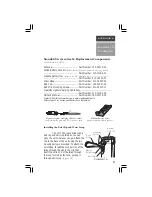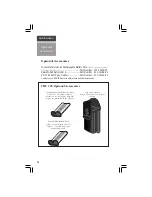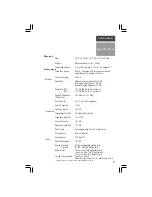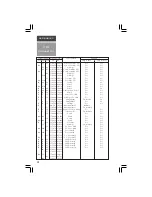
13
GETTING
STARTED
Maritime
Radio Services
Operation
Channel 13:
Navigation - used by any vessel for safety communica-
tions regarding the maneuvering of vessels or directing of a vessels
movements. Ship-to-ship and secondarily ship-to-coast communica-
tions. Commonly called the Bridge-to-Bridge channel. For routine
operations, radio power must be reduced to one watt.
Channel 15:
Environmental - Used by any vessel to receive only
broadcast information concerning environmental conditions in which
vessel operate, such as, weather, sea conditions, time signals, and
hazards to navigation. One-way broadcast from coast-to-ship stations.
Channel 16:
Emergency - Used if your vessel is sinking or on fire,
someone has been lost overboard, or there is grave and imminent
danger to life or property. Every ship is obliged to give priority to
radio distress communications. Calling - This channel is also used to
establish communication with another marine radio station. After
contact is made, switch to a working channel. Due to congestion on
channel 16, particularly in high traffic areas, the FCC has approved
channel 9 as a second hailing channel.
Channel 17:
State Control - Used by state and local government
vessels to coordinate, regulate and control boating activities and the
rendering of assistance.
Channel 22:
U.S. Coast Guard - For use by any vessel for exchange
of communications with a U.S. Coast Guard station. Communication
is ship-to-U.S. Coast Guard ship, and coast-to-aircraft station.
Establish contact on channel 16 then shift to channel 22 as directed
by the U.S. Coast Guard.

















